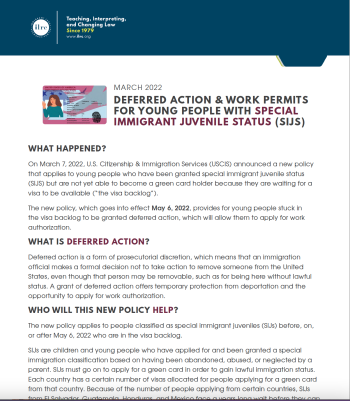
On March 7, 2022, U.S. Citizenship & Immigration Services (USCIS) announced a new policy that applies to young people who have been granted Special Immigrant Juvenile Status (SIJS) but are not yet able to become a green card holder because they are waiting for a visa to be available (“the visa backlog”). The new policy, which goes into effect May 6, 2022, provides for young people stuck in the visa backlog to be granted deferred action, which will allow them to apply for work authorization. This guide addresses some questions the community may have about this recent change.

Two immigration statuses that may overlap are Asylum and Temporary Protected Status (TPS) because they both help people who are afraid of returning to their home country. While these two are different in a few ways, it is useful to know what each option offers and that applying for both is allowed, so long as an applicant is eligible. This brief guide delves into the ways these two options might intersect and what to keep in mind as individuals consider each type of status.
"An Overview to Special Immigrant Juvenile Status," excerpted from ILRC’s new publication Special Immigrant Juvenile Status and Other Immigration Options for Children & Youth. (Excerpted from Special Immigrant Juvenile Status and Other Immigration Options for Children & Youth.)
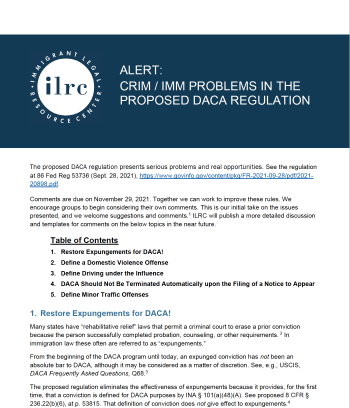
The proposed DACA regulation presents serious problems and real opportunities. See the regulation at 86 Fed Reg 53736 (Sept. 28, 2021), https://www.govinfo.gov/content/pkg/FR-2021-09-28/pdf/2021-20898.pdf.
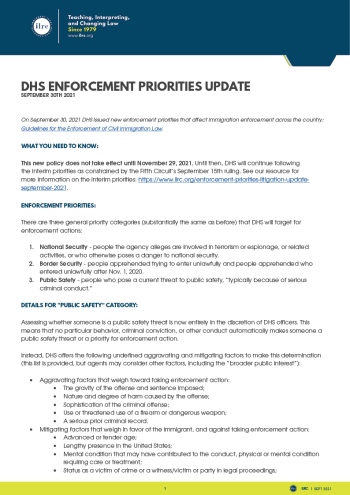
A quick digest of the new DHS immigration enforcement priorities released in September 2021.
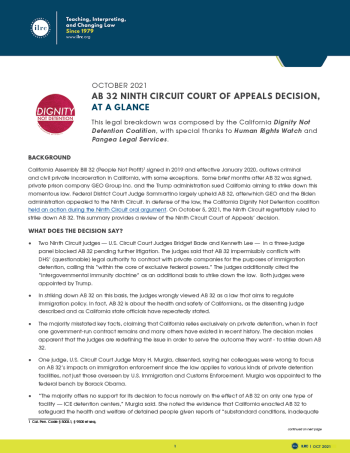
AB 32 (People Not Profit) signed in 2019 and effective January 2020, outlaws criminal and civil private incarceration in California, with some exceptions. Some brief months after AB 32 was signed, private prison company GEO Group Inc. and the Trump administration sued California aiming to strike down this momentous law. Federal District Court Judge Sammartino largely upheld AB 32, afterwhich GEO and the Biden administration appealed to the Ninth Circuit.
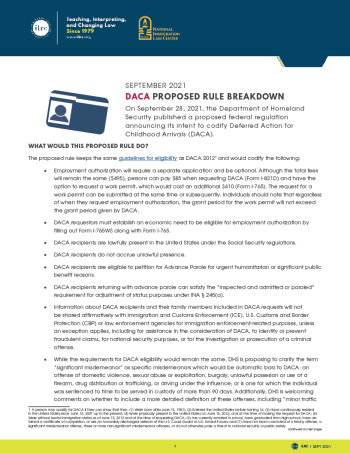
On September 28, 2021, the Department of Homeland Security published a proposed federal regulation announcing its intent to codify Deferred Action for Childhood Arrivals (DACA).
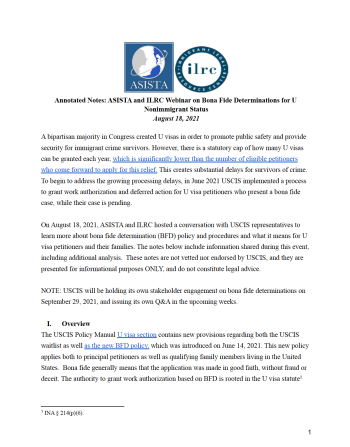
On August 18, USCIS provided information on the new bona fide determination process for U visa petitioners and their family members on a webinar hosted by ASISTA and ILRC. These notes include information shared during this event, including additional analysis. These notes are not vetted nor endorsed by USCIS, but prepared by ASISTA and ILRC.
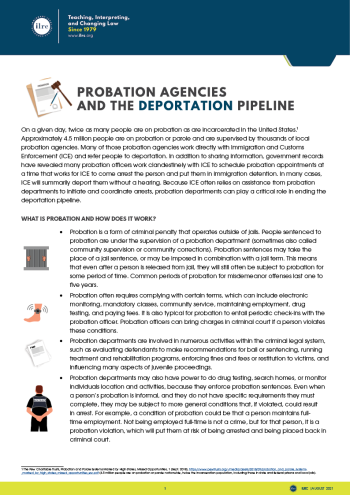
4.5 million people in America are on probation. What is probation, and what does a probation officer do? How are probation departments involved in immigration enforcement? This short explainer seeks to provide basic information about probation and highlight the nefarious role that many probation agencies take in turning immigrants over to ICE for deportation.
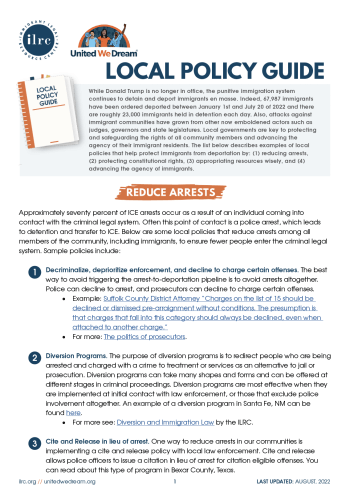
As attacks on immigrants continue and the DACA program remains in limbo, now more than ever, it is important that local elected officials take bold action to protect immigrants within their jurisdictions. This guide, co-authored by United We Dream, provides examples of local policies that help protect immigrants from deportation by: (1) reducing arrests, (2) protecting constitutional rights, and (3) appropriating local resources wisely.